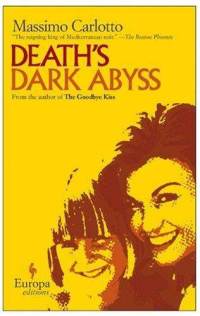This is another book I've chanced upon because I've been part of the NYRB book club over on Good Reads. It's really a quiet gem of a book, short and in some ways simple. We've been having quite a good discussion of it over there if you want to take a look--although you might have to join the group to see it. I'm not really sure how that part works.
The story begins in a moment of nervous anticipation. Skylark, the daughter of two aging parents, is leaving for a week in the country with relatives. The threesome has never really been apart before. Skylark, despite the lighthearted quality of her name is the unmarriagable spinster daughter in a provincial outpost of the Austro-Hungarian empire. Though the novel was written many years later, after WWI had come and gone, the year is 1899 in the story--a year when it must have appeared that things would always be as they had been before. For me, part of the sadness of the book is that the characters do not know that in a few years time, extraordinary changes will have found there way even to sleepy Sárszeg. But the author certainly does, which made us wonder a bit why he had chosen this moment and represented it in some ways as eternal. More than one commenter in the discussion found there was a fairytale quality to the story.
Although this did not strike me as a purely satiric book, it is possible to read it as dark humor. In fact the author does signal this in some ways, because not only is Skylark one of the least aptly named people in the world--the parents apparently still call her that from a time when she would still sing--but she is not even the main character of the story. Most of the time she is offstage. This is not to say that she is an incidental character--she is in some ways the prime mover of the tale. Or maybe more accurately, the prime non-mover.
Once she is gone, the parents are left, very reluctantly, to their own devices. By stages, they rediscover and in turn show us this little town, which despite its provincial quality turns out to be quite a lively little place. I think this fits in with a realization that the journalist Miklós Ijas (who is surely a stand in for Kosztolányi himself, also a journalist) has at one point. He is one of those brilliant youths who is always longing to get away to the capital, as perhaps rightly, they should. He has a different destiny. But in becoming aware of the poignancy of the plight of this little family, whose members both love and are trapped by each other, he gains a deeper insight into the common bonds of humanity he shares with them. I had wondered how Kosztolányi, a famous and brilliant Hungarian literary figure, could write so penetratingly of people who shared none of these traits. A moment of similar empathy in his own life probably lies behind this beautiful little novel.
The County Line
-
ONLY £1 in the UK today for this STEVE WEDDLE novel. A steal.
From Steve Weddle, the author who the New York Times calls “downright
dazzling,”
5 hours ago



